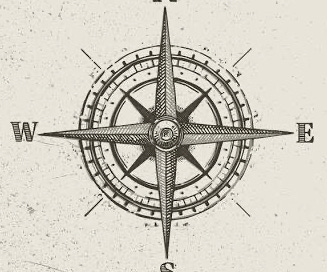A few years ago, I had an acquaintance who spent much of her time trying on new personas and posting them on social media, to see how they fit.
She was a heavily-tattooed suburbanite with a small organic container garden; a dedicated yoga-doer; a rose-grower; a vegan; in recovery. A month later, she had abandoned yoga for all-night parties, had her garden ripped out, cracked nasty jokes about her local organic/small-holding community, posted photos from an all-you-can-eat meat festival, and publicly drank Grey Goose out of a booze bangle.
I mentioned this bifurcation to a mutual friend, who just shrugged.
No one is who they say they are on social media, she said. You should know that.
Her comment rattled me. For one thing, I don’t think it’s true. For another — call me Pollyanna—I actually assume that what I am seeing on social media is at least mostly real. I suppose that in the early days of social media, people weren’t always who they said they were: they used Facebook to massage — first gently; then aggressively — their public images. On Tik Tok, which skews far younger, anyone can purport to be anyone, with the help of overdubs and filters. On Instagram, virtually everything can be manipulated, from light to the presence of fine lines and double chins. But these visual tweaks are just that: tweaks. They are not, however, entire personas.
Virtual reality is tailor-made for people leading quiet, aging lives. We exaggerate: a pillow becomes a longtime meditation practice; a pile of papers becomes a new screenplay. It makes us something other than who and what we are.
In my memoir workshops, I talk about the creation of a persona as a narrative device: in the writing of memoir, a persona is the You-Not-You who is telling the story, and who has developed a particular voice — different from what Vivian Gornick calls your everyday voice — that will tell that story. Developing a narrative persona creates a sort of DMZ allowing for the telling of a difficult story with context, distance, and ultimately/hopefully profound (if ambiguous) clarity.
On social media platforms, though, experimenting with personas can wreak havoc on one’s own sense of self, and authenticity: Who are we? What do we do? What do we love? What is meaningful to us? What is not? What is real? What did we cook for dinner last night? Worse, it can be quantified when one of our personas gets more likes than another, compelling us to list towards the “successful” one, even though it’s really not representative of who we actually are. I once wrote in an essay about how social media and virtual realty rules are often bent to the degree that it’s hard to know what’s the truth and what isn’t:
Virtual reality is tailor made for people leading quiet, aging lives; apps like Facie remove lines and double chins; soft, desaturated light blurs the hard, veneered edges of a basement Office Depot desk just out of view of the furnace. We exaggerate: a pillow becomes a longtime meditation practice; a pile of papers become a new screenplay. It makes us something other than who and what we are. - from Dame Magazine
After my booze bangle friend posted about a party she’d gone to in Aspen, I met her in the city for lunch. And the whole time we were there, eating our cacio e pepe at Via Carota, and I was watching her talk — her mouth was moving, she was gesticulating wildly, she would throw her head back and laugh now and again —- all I kept wondering was: who am I eating with? Which version am I getting? I looked for clues: it was lunchtime and she wasn’t drinking because she wasn’t ever a daytime drinker—she had to drive back to central New Jersey. She was a little snarkier than usual, but there was always some snark with her. It was right before Christmas and she was planning on having an open house at her river loft in Bucks County. A ton of vodka and a meat-a-palooza, she said, pushing up the sleeve of her Aran sweater to reveal a fine-lined sheaf-of-wheat tattoo on her forearm, inked in the previous year. You’ll come, won’t you?
I didn’t bring up her erstwhile veganism or her apparent abandonment of yoga, because — it occurred to me — that they too were possibly just for the sake of that season’s persona, and perhaps not real. It’s not for me to say, although I did also worry about the booze bangle; I wanted to reach across the table and ask her, point blank, if she was alright. I had been open with her about my own exhausting, back-and-forth, years-long mud-wrestling match with wine — as a former culinary professional I assumed that wine was simply just my right, but in fact, despite my apparent hollow leg, it was not — yet I found myself getting danger signals from her. The conversation would not end well: questioning her, even gently, would be implying fraud. So I just sat there and listened, as friends do.
Keep reading with a 7-day free trial
Subscribe to Poor Man's Feast to keep reading this post and get 7 days of free access to the full post archives.






